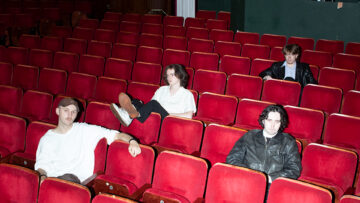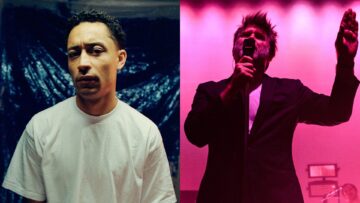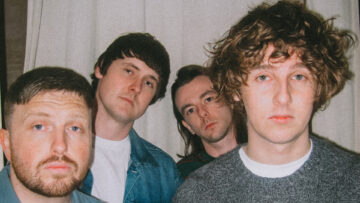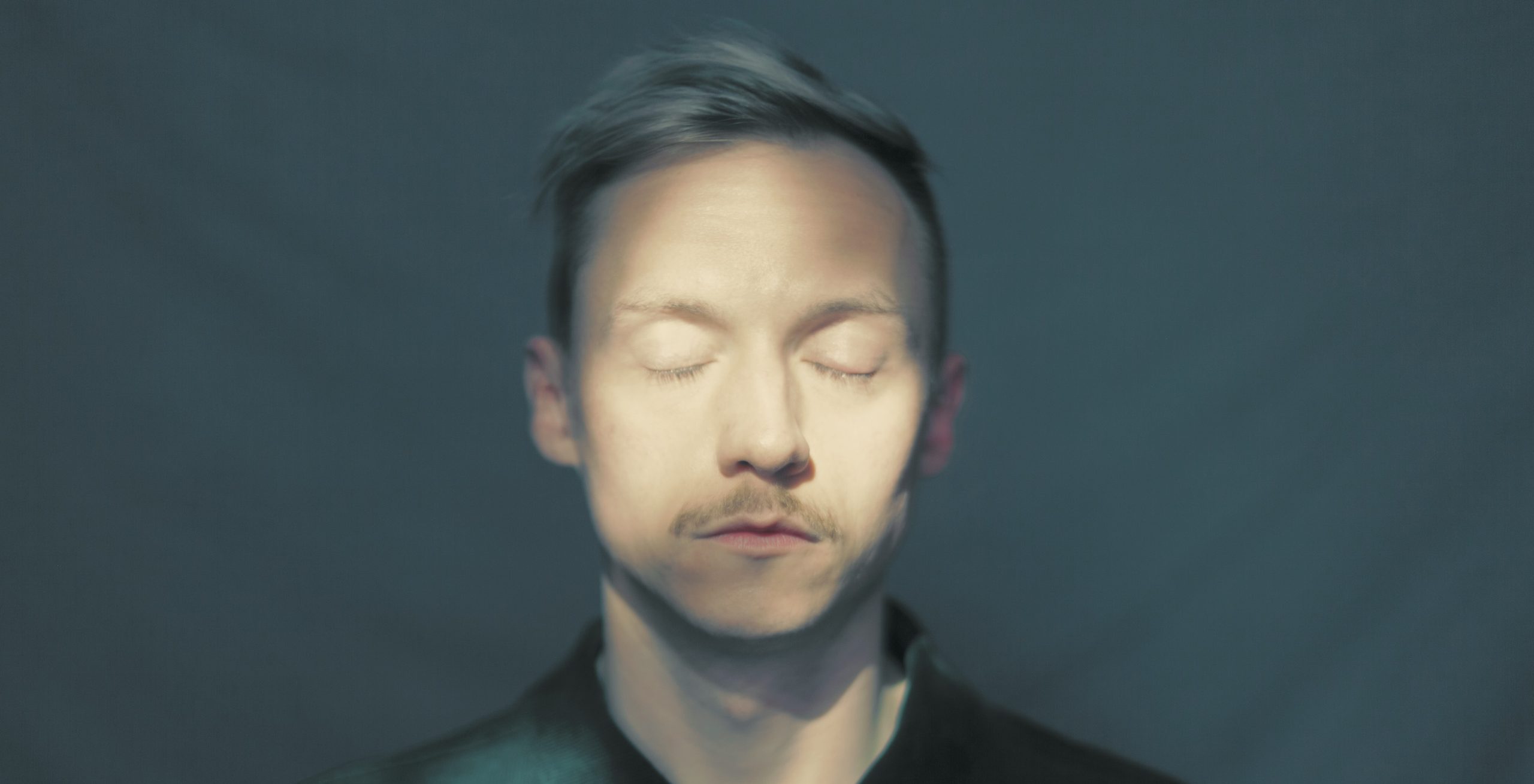
Writing about Hamish Hawk is a more considered affair than usual. The 31-year-old from Edinburgh is precise with his words and conscious of how things can be interpreted. Often, he rather eloquently doubles back on what he says, providing the extra clause here and there for clarity.
On a few other occasions he says, in his low Scottish accent, “well that’s a good question”, one time adding, “that’s exactly the question I would ask if I were interviewing a songwriter”. This isn’t a PR trick to bide him more time to answer, but part and parcel of a mind that’s acutely aware of subjectivity and objectivity, of the sign and the signifier – of words and their meaning.
In many ways you’d have to be, to write a song as meticulously-titled as ‘The Mauritian Badminton Doubles Champion, 1973’, a sweeping rock-pop number that weaves in references to 17th century architect Christopher Wren; or ‘New Rhododendrons’, the closing track on the same album, Heavy Elevator, which has a literary flow expressing the “Highs much like the lows / Looking up Caravaggio / And mythological / Hymalayan hollows.”
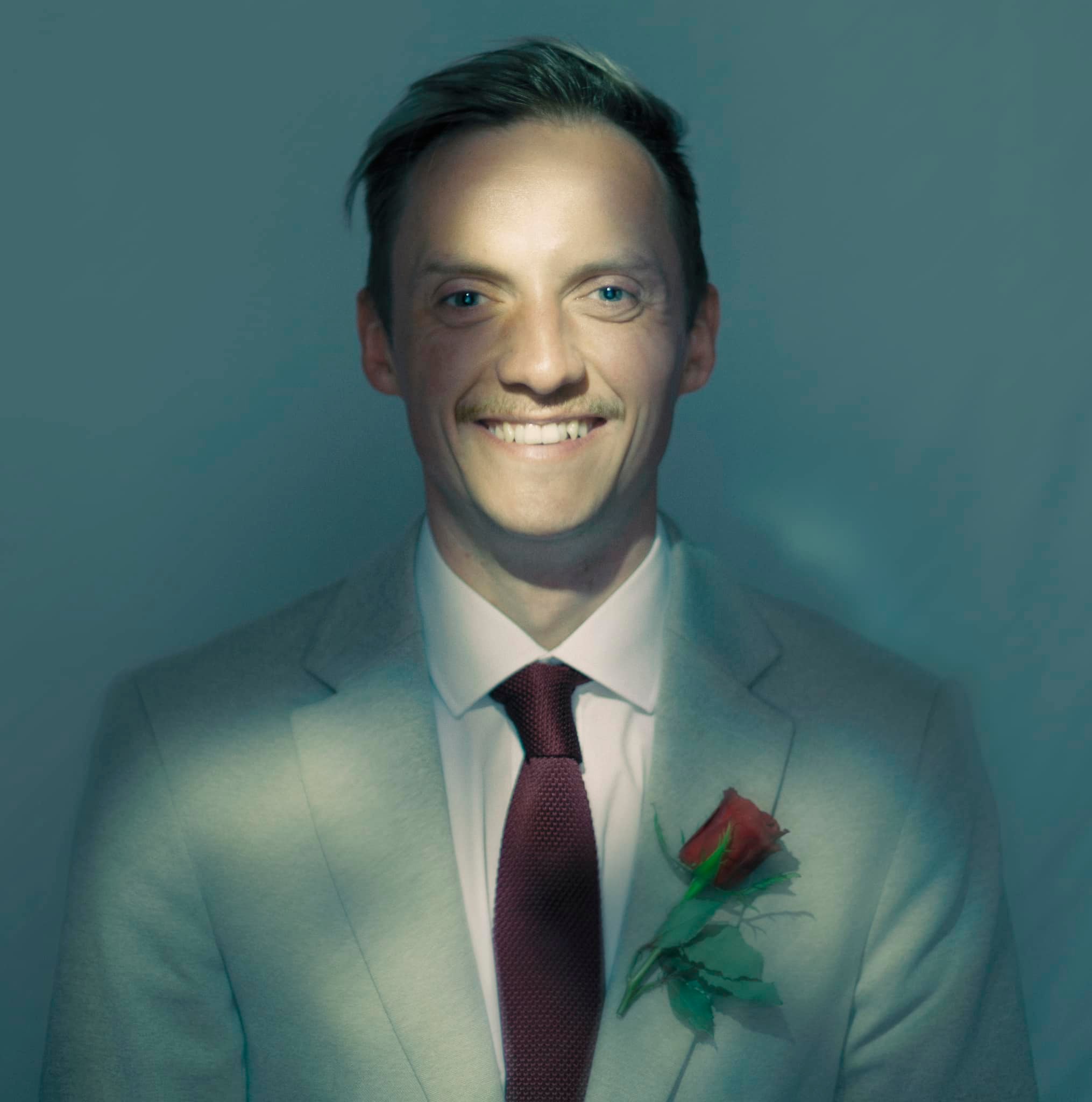
That’s not to say it’s stifling talking to him, or that he’s hawkish (pun intended) over how I respond to his answers – quite the opposite. There’s just an intelligence, matched by a hope for his art.
Granted, the artistic road he’s been on has had its challenges (its “highs much like the lows”), with self-doubt knocking at Hamish’s door several times. Intelligence is no guarantee for success. But Heavy Elevator, released in September 2021, marked something of a turning point for Hamish, providing a steady ascendance in his stock despite the record’s oxymoronic title, which was intended to reflect “the recurring feeling of the album, an attempt to move upwards”.
Not only was it voted the album of the year by Scottish indie magazine The Skinny, but it was nominated for the Scottish Album of the Year Awards – respectably missing out to Fergus McCreadie’s exceptional Forest Floor.
What’s more, it made Hamish a firm favourite of BBC Radio 6 Music, with support from Steve Lamacq, Chris Hawkins, Lauren Laverne and Radcliffe and Maconie that Hamish “couldn’t be more grateful for” (his gratitude in this case being the only instance where he’s lost for words, during our hour-long conversation).
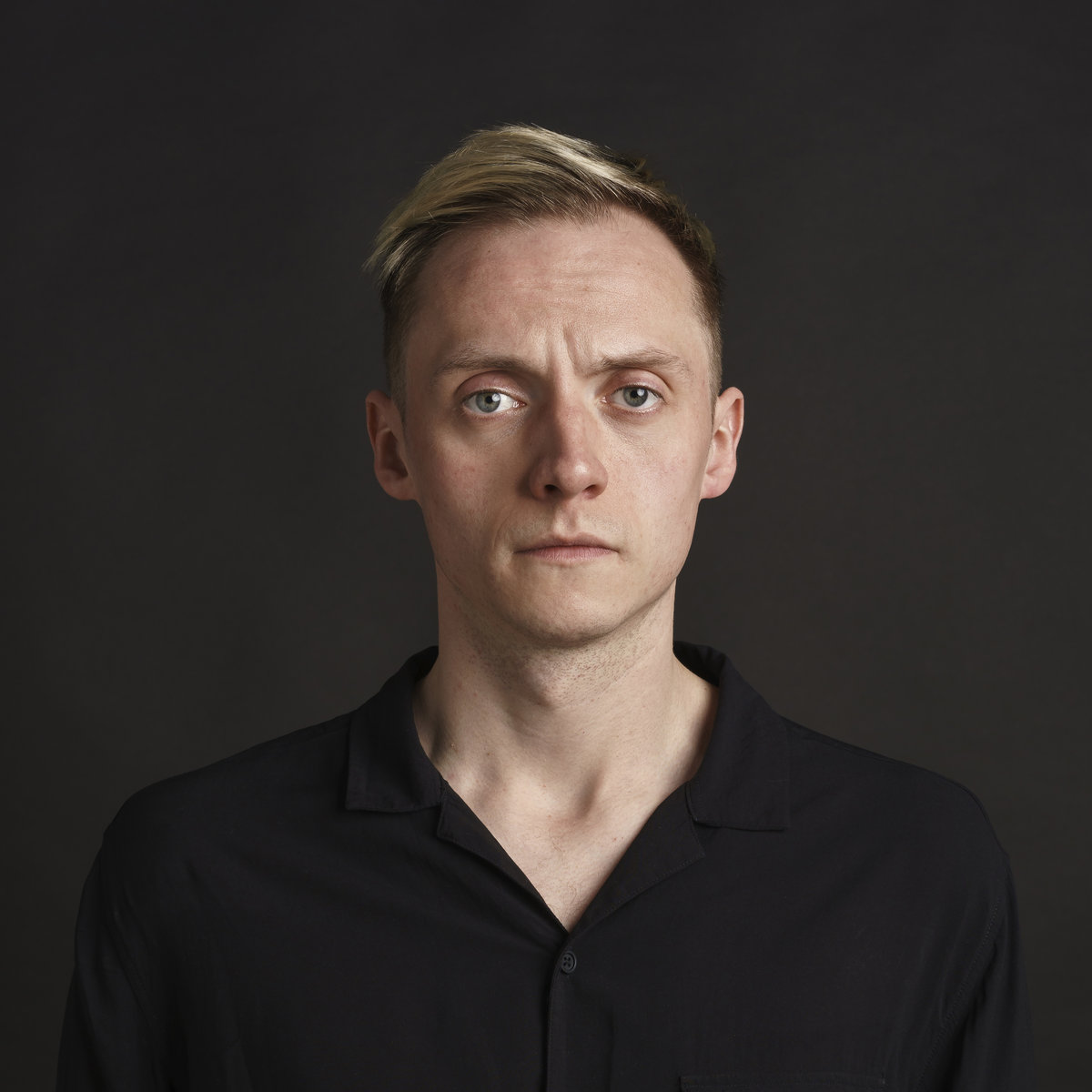
“This past year-and-a-half has been such a… I mean, I keep saying ‘whirlwind’. That’s the word that keeps coming back to me. Considering what my music career looked like beforehand, which was generally populated by support slots, and little tours every so often if I was lucky enough, and records whenever I could essentially afford to make them, but constantly writing; essentially the bulk of my career was behind the scenes, as it were. Or, if it was on the stage, not that many people would pay attention.
“It’s certainly felt that in this period where things are really happening, I’m not waking up trying to push the boulder up the hill, it’s already rolling. I’ve had tours all the time, lots of recording, lots of sessions – and I’m absolutely loving every moment.”
Part of Hamish’s newfound creative confidence was derived from him focusing on what he does best – wordsmithery – whilst his band guitarist Andrew Pearson and Stefan Maurice, on keyboard and drums, picked up more of the musical composition. Much like the album cover, this placed Hamish and his greatest asset front and centre.
“Even though [Heavy Elevator] wasn’t my first ever record, it was certainly the first record of its type; it felt like a step in a new direction, where I was finally able to achieve the visions I’d had for the music. I’d long heard songs in my head where I thought, ‘I’m not technically gifted enough to write that, I can’t do it on an acoustic guitar, or on keys.’
“So finally, when I was able to just do the words, the music took on different limbs, because Andy and Stefan started being responsible and it just grew… There were risks I was taking in those lyrics that felt like a different animal completely; I was testing my boundaries, and it was revealing new aspects of myself to me, and new aspects of my songwriting.”
With Heavy Elevator stretching the limits of what he’d previously known, it’s unsurprising that on Hamish’s forthcoming record, Angel Numbers (also produced by Idlewild’s Rod Jones), one track in particular pays homage to the intense mental energy Hamish was giving to lyricism – to the point where it had encroached on his dreams. ‘Bill’, “a little dream sequence”, isn’t about receipts, but is about the great baritone country singer-songwriter Bill Callahan – who for Hamish is up there with Dylan and Cohen as a songwriter.
During lockdown, Hamish took on what he self-deprecatingly calls “a ‘New Agey’ thing” of writing down his dreams. (Another such type of ‘New Agey’ thing he describes is the title of Angel Numbers, used to signify recurring number sequences that are thought to bear some kind of spiritual significance). After noting down your dreams for a sustained period, they become much more vivid.
“In one of my dreams,” he explains, “I was visited by Bill Callahan, who is a towering songwriter and I’m completely in awe of what he has achieved and continues to write… He said to me the line, ‘When you hate the song, come and find me / When you’ve spent too long staring at ‘Money’’, which is interesting because it rhymes. I don’t usually have award-winning songwriters giving me little couplets in my dream – believe me, this was unusual.”
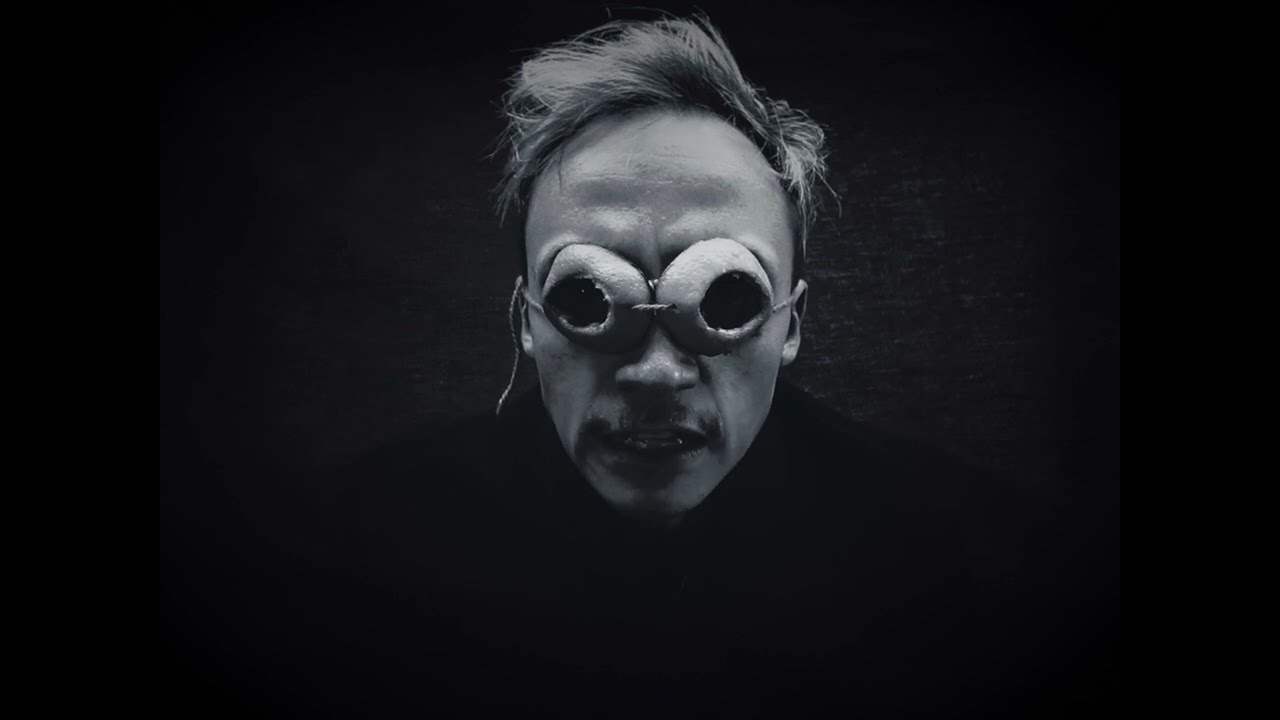
Bill’s words, hallucinatory or not, didn’t just refer to money in general, but another track from Angel Numbers called ‘Money’ – a track which bears some of Hamish’s favourite personal songwriting and which, he says, “I think is almost nothing to do with money.”
“I remember the day [I wrote it] very fondly,” he adds. “Sometimes songs can come out piecemeal, in little bits, and take months; sometimes they come out in 15 minutes, fully formed. ‘Money’ was the product of me going out for a walk in town and coming back with all these words.”
“They were exciting to me because they were crammed full of new, novel images; this influx of new stuff I’d never sung about, phrases I’d never considered before. And it really felt like ushering in something brand new, so I have a real fondness for that song.”
“One of the reasons I like it is also because it darts all over the place. It is a polemic – it’s not an attack, necessarily, it’s more like a venting, with a lot of dissatisfactions and discontents that all just poured out on that one walk.”
Indeed, as well as the odd highbrow historical or cultural reference appearing in his lyrics, there’s equally a salt-of-the-earth remark to root his writing firmly in reality. It’s not of post-(post-)ironic Dry Cleaning ilk, but more akin to Scott Walker – someone who Hamish is frequently compared, and who Hamish describes as “this kind of ballroom crooner, whose lyrics are very banal; he has this mysterious, enigmatic aesthetic, almost this kind of chanson singer, but with these lyrics that are about such ordinary things.”
Cutting through the middle of Angel Numbers’ titular track, for instance, is the commonplace refrain, “They say the magic word is mortgagе” – a line which both points at the tedium of life whilst reflecting on ways to escape it. It also bears the hallmarks of what Hamish describes as “the Jarvis Cocker view of the world, that kind of humdrum kitchen-sink vision of the world.”
For Hamish, Cocker also typifies the kind of “charismatic frontman” that he’s long admired, someone he doesn’t hope to mimic so much as emulate in his own way. Extensive touring in both 2021 and 2022 have helped him develop that.
“I’ve loved performing from a young age, it does come naturally to me. It’s up there with my favourite things to do, and I feel like I’ve gotten better at it. There are still aspects of it that frighten me and make me nervous – in the wings before I go on, I’m definitely feeling pretty anxious- but once I’m on the stage, there’s nowhere else I want to be.
“And then you get kind of swept up in it and, suddenly, you’re offstage an hour later thinking, ‘Did I really achieve what I wanted to?’ I think you get closer to it every time. You get better at it, but there’s a mystical frontman that I’m not yet.”
Such admittance is precisely the kind of honest insight from an artist who’s not only cognisant of what he actually says, but who’s taken the long, hard road as to develop his showmanship. (And after seeing him at last year’s Sound City festival, I can attest he’s earned his performative stripes). And a pursuit he seems at peace to now dedicate himself to.
“Being an artist is this free-form version of a career, of an identity. There is tension, definitely. And I’m hyper-aware of it all the time. I’m 31 now, and I think what my 20s did for me, and have positioned me for, is for me to be I’m all in. I’ve paid my pound of flesh, and this is it now.
“Certainly amongst friends of mine who are also artists or peers, we all have this thing that is this struggle. And that’s what Angel Numbers is about, as an album it reckons with that a few times. But I’m all in, and I don’t want it any other way.”

